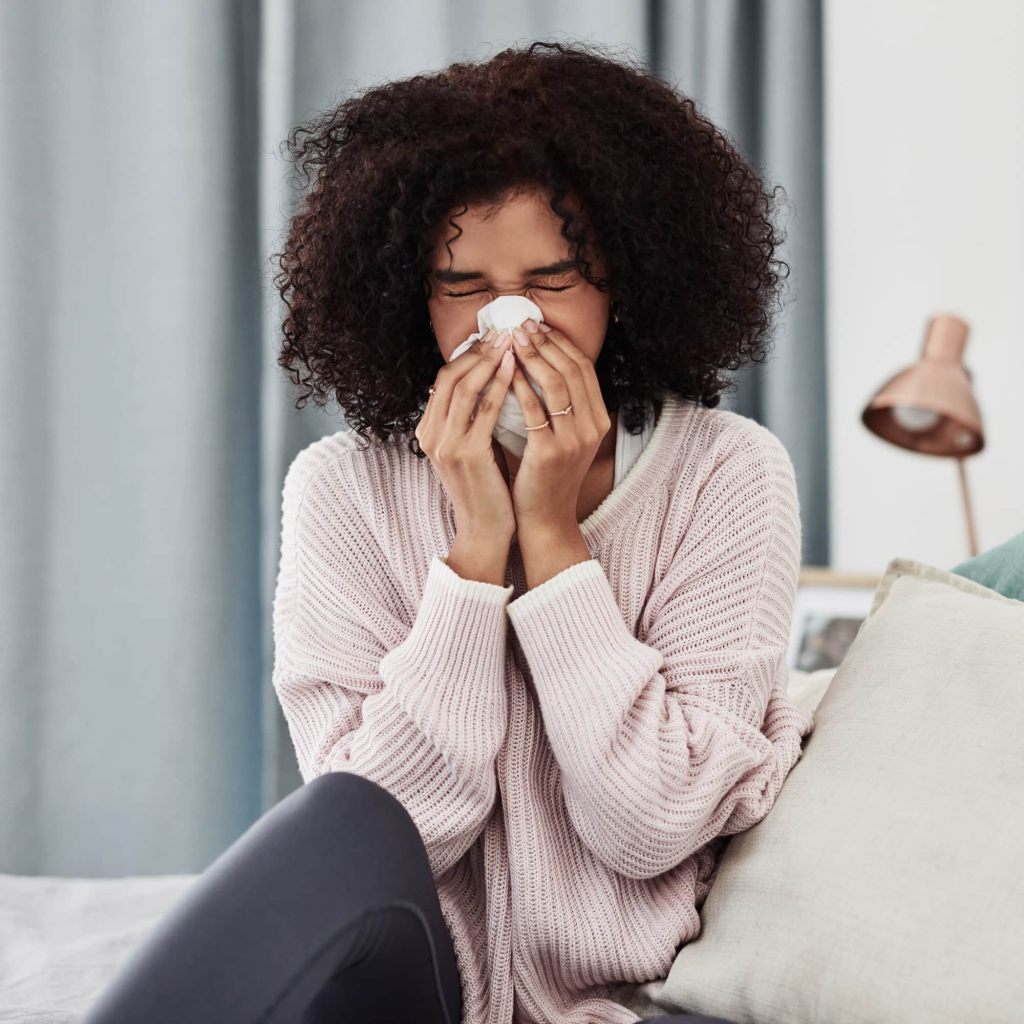Congestion due to COVID-19, the flu, or a mild cold is common, but what if you’re not sick and your nose is constantly getting stuffy at night? What could be the cause and how can you prevent it?
Why Does My Nose Get Stuffy at Night?
Purvi Parikh, MD, an allergist with Allergy and Asthma Network, said most commonly dust mites are the culprit of congestion at night. This is gross, but they live in our pillows, bedding, mattress, box spring, upholstery, carpeting, and under the bed, and we spend a lot of time there at night.
He said that “other indoor allergens like pet dander and mold may also play a role.” Another cause could be the dry heat and lack of moisture in the air, which is common in the winter, and makes congestion worse. Dr. Parikh added that laying flat can also cause congestion or make it worse due to difficulty draining the sinuses. I asked if acid reflux could cause a stuffy nose, but he explained that reflux usually causes a sore throat or cough rather than stuffiness.
How Can You Prevent Getting Congested at Night?
If you suspect that dust mites are the issue, use special dust mite allergen covers on your pillows, mattress, and box spring. Be sure to wash bedding often, and don’t forget even the curtains covering your windows. Sheets should be washed every one to two weeks, and wash your duvet cover every few months, or more often if your pet sleeps on your bed.
Speaking of your pets, Dr. Parikh said you may want to (sadly) keep them out of the bedroom all day and while you sleep. Or if you can’t bear the thought of not snuggling with your furballs, place a small blanket over your cover – it’s easier to wash than your bulky comforter. Also, get rid of any rugs, carpet, and bedding made with down.
Using an air purifier with a HEPA filter can help with dust, dander, and mold if you live in a moldy place with history of water damage, Dr. Parikh said. Not only can running a humidifier at night prevent dry air that causes congestion, but it can also prevent dry mouth, sore throats, or coughing at night.
Food allergies could also lead to congestion, and one common food linked to stuffiness is dairy products. Try ditching dairy for a week and seeing if that helps. Eating other foods can cause a reaction that mimics seasonal allergy symptoms, such as nasal congestion, and it’s known as oral allergy syndrome. Some common foods that can trigger this are cherries, oranges, apples, cantaloupe, peaches, pears, bananas, almonds, kiwi, peppers, carrots, celery, watermelon, zucchini, cucumbers, tomatoes, honeydew, chamomile tea, and sunflower seeds. Some people are also allergic to chocolate, which is a common food eaten after dinner, and that could be the reason your nose is stuffy.
If congestion at night is still an annoying issue after addressing these items, and it’s affecting your sleep, you’ll want to meet with your doctor or an allergist to get relief.

